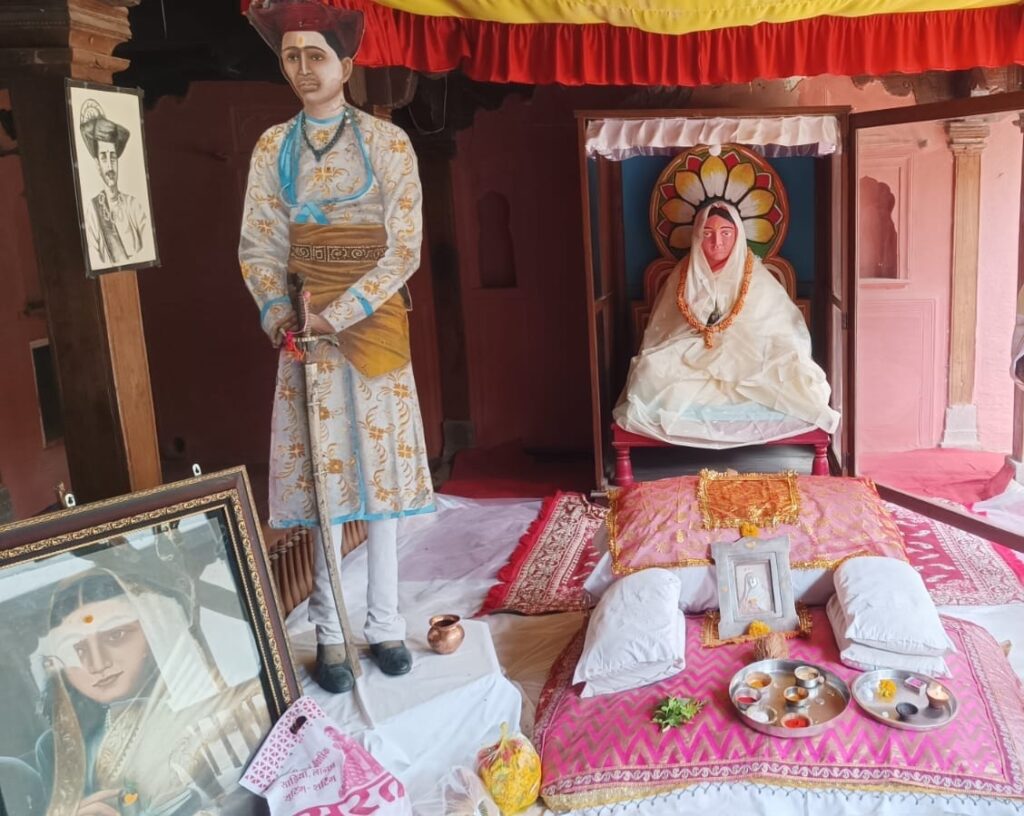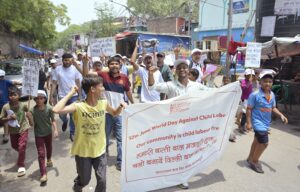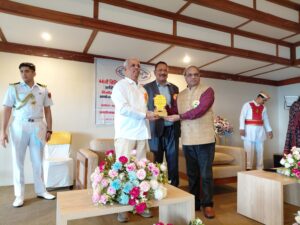
By MEDHA BAJPAI
Lokmata Ahilyabai Holkar’s rule was a period of social revolution for women. She took decisions with justice, compassion and discretion that could be considered revolutionary for that time. Her efforts brought education, respect and rights to women. It can be said that she had laid the foundation of women empowerment in the 18th century itself. Today, when we talk about gender equality, Ahilyabai’s vision and work inspire us.
Society was not liberal towards women
Before Ahilyabai, society was not liberal towards women. There was no education for them and there was the practice of purdah. They were deprived of property and social participation. Marrying at a young age and becoming a widow at a young age was common for women. Widows were not allowed to remarry and had to face social boycott. Women were not given any rights in family property.
In the justice system, women were counted last and there was neither power nor faith in justice. Religion was being tied to superstitions and customs. But Ahilyabai learned family management, governance, weapon handling and impartiality under the loving care of her mother-in-law Gotmabai and father-in-law Malhar Rao.
Social revolution for women
The rule of Ahilyabai Holkar was a period of social revolution for women. She took such decisions with justice, compassion and prudence that could be considered revolutionary for that time. At the age of just 29, Ahilyabai wanted to commit sati after becoming a widow, but on the request of her father-in-law, who was like a father to her, instead of becoming sati, she decided to serve the people and dedicate her life for the welfare of the masses. This is where she found the path to become Lokmata. Because in society, conduct has a greater impact than words.
Set the standards of women empowerment
In 1767 when Ahilyabai announced to take over the reins of the Holkar Empire in adverse circumstances, a section of the society was not ready to accept the rule of a woman. They thought that how can a helpless and widowed woman run the kingdom, she should worship while staying within limits. But Ahilyabai’s affection, love, service, justice, determination and religious conduct towards her subjects made her from a queen to Lok Mata. She set the standards of women empowerment, she was always a visionary for empowerment.
Provisions of social order made by Ahilyabai
Ahilyabai established an ideal by ruling with valour, patience, foresight and skill. She proved that a woman can work at par with men. Nana Phadnavis had said that Ahilyabai is unique in manliness, foresight and greatness. No one can match her in these things. There was enmity between the Nizam of Hyderabad and the Maratha Empire, yet the Nizam respected Ahilyabai a lot.
Ahilyabai herself did not observe purdah, nor did she advise to observe purdah. She went on pilgrimage many times at a young age, which gave her knowledge of the social condition. Wherever she went, people would meet her, she would see the condition of the people and gained a lot of knowledge from experience. She herself would collect taxes, give justice, give orders and share the sorrows of the people.
Women’s military contingent
When Ahilyabai’s patience started to waver due to the death of her husband, son and father-in-law, she prepared a women’s army to deal with the conspirators. In Maheshwar, she herself trained women in the tricks of war, weapon use, acrobatics and horse riding. She strengthened the women’s military organization. This awakened the confidence of women and they practiced diplomacy. Lokmata Devi Ahilyabai was very sensitive towards women’s honor and safety. She established women’s security groups in the village. She formed women’s guard groups.
Took great care of her soldiers and their families
She took great care of her soldiers and their families. She employed the wives of martyred soldiers and prisoners in her ambitious saree industry to make them self-reliant so that their families could survive. With administrative skills, he undertook pilgrimages across the country and renovated religious temples. While travelling from Badrinath to Rameswaram, she kept thinking about Sanatan and the action plan to maintain the self-reliance of the coming generation and the pride of cultural values.
Foundation of starting the sari industry was laid
In the expansion of this thinking and empowerment, the foundation of starting the sari industry was laid. While this made women self-reliant, it also promoted the handloom industry by expanding the industry. The credit for starting the concept of Vocal for Local goes to Ahilyabai. Traders from all over the country were attracted by the famous Maheshwari sari industry and started coming to Maheshwar. It is an ambitious legacy to be given to generations. It is an emotional process of connecting with women.
Pioneer of social revolution
When Ahilyabai took power, there was a lot of terror of thieves and robbers in the state.
Taking a revolutionary decision, she announced in a meeting that she will marry her only daughter Muktabai to the person who will end the terror of thieves and robbers. Instead of choosing a royal family for the marriage of her only daughter, she presented new ideas to her subjects by choosing Yashwantrao Phanse, a brave, courageous and intelligent warrior from a common family. She took some revolutionary decisions for the social respect and self-reliance of women. She gave property rights to women, widows the right to adopt a son and widows the right to remarry.
Allowed Khem Das’s widow to adopt a son
Khemdas, the moneylender of Siroj, had immense wealth but no children. He also died. The rule of that time was that the property of a childless person was deposited in the government treasury. Ahilyabai met Khem Das’s wife. She allowed Khem Das’s widow to adopt a son and also transferred her husband’s property to her. She got widows and daughters a share in the property and gave it judicial recognition.
‘Spend your husband’s property in public welfare’
Women got direct justice in the court. Ahilyabai herself used to hear women’s cases. Khargone is now the district headquarters. Here two brothers Tapi Das and Banarasidas lived. Both of them died. Tapi Das’s wife came to Ahilyabai. She said, mother I want to offer you all the property of my husband and brother-in-law. Ahilyabai consoled her and said, your property is your husband’s, neither the state nor anyone else has any right over it. You should spend it in public welfare. And in his memory, get a Ganesh temple and a ghat built on the banks of the Kunda river. That ghat is still situated on the banks of the Kunda river.
The efforts made by Ahilyabai are a source of inspiration for our society today. Issues such as women education, widow remarriage and property rights established by her are still a subject of social debate. Women police force for women’s safety Today’s women police, which is working for the safety of women in every city, its idea comes from Ahilyabai’s ‘Nari Prahari Dal’.
Women’s Commission and judicial access Just as the Women’s Commission is working for the justice of women today, Ahilyabai had ensured direct judicial access to women.
Self-employment schemes Just as the Prime Minister’s Mudra Yojana and women entrepreneurship programs are running today, she established similar self-employment in her time through the ‘sari industry’. The emphasis that is being given on women’s education even today, its foundation was laid by Ahilyabai in her time by educating widows and girls. Son adoption policy By allowing childless women to adopt children, she respected the right to motherhood in that era, which is the foundation of today’s adoption laws.
(The author is an educationist and columnist)







https://shorturl.fm/YvSxU
https://shorturl.fm/hevfE
https://shorturl.fm/fSv4z
https://shorturl.fm/MVjF1
https://shorturl.fm/PFOiP
https://shorturl.fm/JtG9d